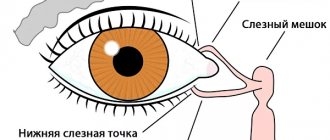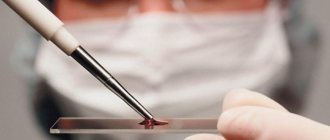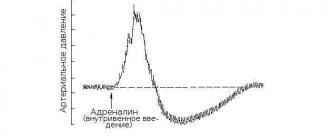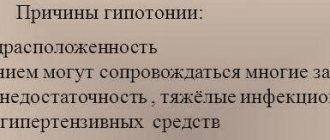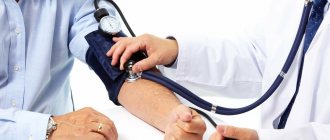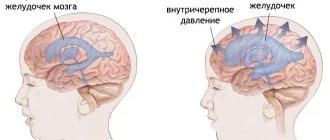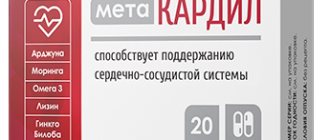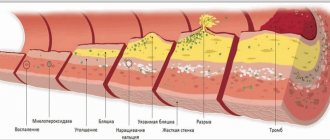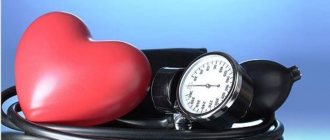Hemorrhoids are an inflammation of the hemorrhoidal veins located at the end of the rectum near the anus. The disease is accompanied by the formation of characteristic nodes and bleeding. In the early stages, hemorrhoids are asymptomatic; many may not even realize that they suffer from this disease. Later stages bring a lot of suffering: prolapse, thrombosis, strangulation.
Depending on where the nodules are located, hemorrhoids are divided into external and internal.
If hemorrhoidal cones are located behind the anal canal, then these are signs of an internal illness.
Hemorrhoids are an inflammation of the hemorrhoidal veins located at the end of the rectum near the anus.
If nodular formations are located around the anus, then this is external hemorrhoids. With combined hemorrhoids, the bumps are located both here and there.
Many people are concerned about the question: “Can hemorrhoids burst?” Unfortunately, it can. If you do not take any measures to treat this disease, hemorrhoids become acute. The hemorrhoidal node ceases to withstand the load, and its thinned walls burst.
Reasons for exacerbation
There are many reasons why hemorrhoids can rupture. These include:
- constipation, in which a person strains heavily during bowel movements, resulting in swelling of the hemorrhoids and their rupture;
- pregnancy or childbirth. When carrying a child, the fetus puts a strong load on the rectum, and labor increases intra-abdominal pressure.
- spicy foods that irritate the mucous membrane;
- alcoholic drinks that dilate blood vessels, causing accumulation and stagnation of blood;
- great physical exertion associated with lifting heavy objects, they lead to the fact that the knot may burst;
- weakened vascular walls associated with heredity;
- sedentary work leading to stagnation of blood in the pelvis;
- excess weight, which increases pressure on the pelvic veins. Read more about the causes of the pathology here.
Symptoms
Determining the external type of the disease is difficult because the symptoms are smooth, but the symptoms of thrombosis with the internal location of the hemorrhoid are pronounced. These manifestations can be defined as follows:
- Feeling of burning and itching in the anus. Discharge is possible, especially after defecation (from straining).
- The presence of blood in the stool - at first scanty, then abundant.
- The occurrence of an attack of acute pain in the anus (not associated with the process of emptying).
- Prolapse of hemorrhoidal cones that cannot be reduced.
- Swelling of the skin near the anus, gradually spreading to the groin area and accompanied by severe pain.
- Painful sensations not only when making movements, but also at rest.
Symptoms intensify as the disease progresses. Normal touching of the skin becomes unbearable as the inflammatory process spreads. Thrombosis of the hemorrhoidal node is visible externally (when examined by a specialist). The hemorrhoid often becomes purple in color, and necrotic areas of the skin are noted. If enhanced measures are not taken to treat the patient at this stage, a rupture of a thrombosed hemorrhoid with heavy bleeding or purulent paraproctitis may occur.
How to stop bleeding yourself?
Violation of the integrity of the nodes can occur at any time, and it is not always possible to urgently consult a doctor. In this case, if a hemorrhoid cone bursts, you need to provide first aid yourself. First of all, to stop the bleeding, you need to apply an ice compress for 15 minutes or take simple cold baths.
You should immerse yourself in a bowl of cold water for a few minutes. It is better if the water is boiled. Baths are done up to 3 times a day, the duration of the procedure is no more than 5 minutes.
To stop the bleeding, you should immerse yourself in a bowl of cold water for a few minutes.
There is no need to overcool the anal area so as not to worsen the situation. At the same time, it is necessary to take a hemostatic agent.
After cold procedures, the affected area should be lubricated with anti-inflammatory ointment for hemorrhoids.
If the bleeding does not stop for a long time, it is necessary to put a suppository for hemorrhoids with adrenaline.
For severe pain, take painkillers. To eliminate internal blood clots, you need to do half-hour warm baths or compresses 5-7 times during the day. It is necessary to maintain hygiene and wash with cool water after defecation.
If hemorrhoids have burst, under no circumstances should you engage in physical activity or take a sitting position!
Detection methods
Thrombosis can be determined by a medical specialist through diagnosis, but the patient himself must be attentive to his health (especially for the external type of the disease).
Diagnostic methods:
- visual examination (on your own, with the help of loved ones or with the participation of a doctor);
- digital examination of the rectum (done by a specialist);
- use of modern equipment (anoscope, rectoscope, etc.).
Externally, the nodes look like violet-bluish formations, and when pressed on, their volume may decrease. There may be black inclusions – necrotic areas.
After palpation, it is possible to see traces of blood on medical gloves; formations inside the rectum bleed; upon contact with them, the patient complains of severe pain.
Examination of the rectum and anus using special devices can give the most complete picture of the disease and make a diagnosis of thrombosis.
Appearance of pus
If a hemorrhoidal node bursts and pus appears from it, then this indicates a fistula or paraproctitis. The reason for this is infection.
If you have hemorrhoids with pus, you should absolutely not self-medicate. You need to urgently consult a proctologist; delay can cost the patient his life.
Acute paraproctitis causes chills, fever, unbearable pain and leads to weakening of the body as a whole.
Timely treatment will help avoid surgical intervention. The doctor will determine the source and prescribe treatment. Acute paraproctitis causes chills, fever, unbearable pain and leads to weakening of the body as a whole.
General concepts
One of the main symptoms of hemorrhoids is the formation of a hemorrhoid in the anus. If these tumors are not stopped at the initial stage, the pain and other symptoms of the disease will intensify. Any movement, simple posture (sitting, standing or lying down), the process of bowel movement - everything will be excruciating and very painful.
If in the initial stages the disease is treated quickly and effectively, then the longer the patient ignores the unpleasant symptoms, the more difficult it is to cope with them later. Untreated or undertreated hemorrhoids have complications that are much more difficult to combat. Thrombosis of the hemorrhoidal node is an exacerbation of a chronic disease.
How to treat hemorrhoids?
Drug treatment for hemorrhoids helps relieve symptoms. Most often, absorbable creams, ointments and suppositories are used for hemorrhoidal cones. It is more convenient to apply cream or ointment to external hemorrhoids, and in the presence of internal hemorrhoids, suppositories will help relieve the condition.
Most medicines consist of natural ingredients that are practically not absorbed into the blood. Therefore, the use of some suppositories and ointments for hemorrhoids is allowed during pregnancy and breastfeeding.
Ice compresses, microenemas and cold baths with decoctions of string, yarrow, stinging nettle, and chamomile can dissolve the cones.
Surgical treatment of hemorrhoidal cones is used only in severe forms of the disease. Surgery may be used when other treatments do not help.
It is also used if hemorrhoidal lumps are causing severe irritation to the patient's lifestyle or in case of a medical emergency (for example, uncontrollable effusion of blood or pus into the anus along with severe rectal pain).
Surgical treatment of hemorrhoidal cones is used only in severe forms of the disease.
Surgery to treat hemorrhoid lumps is considered the most acceptable treatment for severe internal hemorrhoids, but external hemorrhoids are not usually removed by hemorrhoidectomy unless they are very large and uncomfortable swellings.
If hemorrhoids occur with slight bleeding, sclerotherapy is used. The doctor administers a special medicine to shrink hemorrhoidal tissue. Efficiency varies. If sclerotherapy for hemorrhoids does not help, a rubber bandage may be required, which is used for severe internal hemorrhoids.
An elastic band ties the hemorrhoid to cut off blood flow to it. As a result, the node shrinks, dies and, eventually, disappears on its own after about a week. Some doctors use infrared photocoagulation for hemorrhoids.
An infrared sensor focuses on the buds and burns them. This procedure requires multiple sessions and has a high recurrence rate. In addition to light, coagulation can also be carried out by laser or electricity.
Treatment methods for hemorrhoids
Conservative, in which the patient is prescribed medications in the form of suppositories, tablets, ointments. Physiotherapy, mud therapy and other methods are prescribed. The treatment process provides temporary relief, but after a while the hemorrhoids worsen again.
As a result, patients still come to the need for surgical treatment, but the disease has already taken an advanced form and doctors come to perform complex operations.
Low-traumatic methods - sclerotherapy, coagulation, ligation. These techniques do not require hospitalization and are quite easy to perform. However, they are mainly designed for the internal form of hemorrhoids. It is not always possible to remove external nodes with their help.
What to do when repeating the process
Can hemorrhoids burst again? To avoid such a problem, you need to avoid prerequisites for its occurrence in the future:
- In order for tissues to quickly recover, it is necessary to use restorative medications (suppositories and ointments);
- In addition to drug treatment, it is important to use a course aimed at restoring and preventing the manifestation of hemorrhoids, which includes maintaining proper nutrition, introducing light physical activity or an active lifestyle.
Treatment with traditional remedies
How to treat burst hemorrhoids? If hemorrhoids burst and bleeding comes from the anus, you can resort to traditional methods of treatment. How to stop bleeding? It's not easy to do this on your own. But if you have visited a doctor and have been prescribed medications and other therapy, you should adhere to the prescribed method of treatment. The most common in this regard are suppositories, which is due to the content of vasoconstrictor components (thrombin, bismuth) in their composition, which have an astringent effect. In this regard, suppositories containing propolis, which have an antibacterial effect, are highly effective. The use of suppositories is prescribed by a proctologist. The course lasts from 3 to 5 days, after which healing and antiseptic drugs are used - Vishnevsky ointment or Levomekol.
As soon as the bleeding stops, you treat the wound with hydrogen peroxide; you need to apply ointment to lubricate the burst node
Is surgery necessary if hemorrhoids burst?
In case of infection or severe inflammation, a severe form of hemorrhoids, surgery is necessary. Otherwise, this may pose a danger of the same situation occurring in the near future with other hemorrhoids. But before you go on the operating table, it is important to treat the nodes at risk. If a ruptured hemorrhoid develops a complex form of hemorrhoids with blood clots or blood clots, the doctor makes a small incision in the anal area, where he removes the formed blood clot, this leads to a decrease in the feeling of pain. But there are also some nuances here: the operation is performed within the first five days from the date of thrombosis formation, after this period the operation is excluded. Surgery should be used if medication and other treatments do not lead to improvement. If there is excessive bleeding and if it cannot be stopped, the surgeon may decide to cut out a section of tissue containing blood vessels. After such an operation, outpatient treatment may be expected, subject to the recommendations and conditions of the specialist.
Bursting hemorrhoids do not cause serious complications provided timely and correct first aid. Therefore, the important point is not to cause hemorrhoids. An integral component of prevention and postoperative treatment is strict adherence to personal hygiene and wound disinfection. That is, it is necessary to regularly wash the anus and properly treat the resulting wounds.
